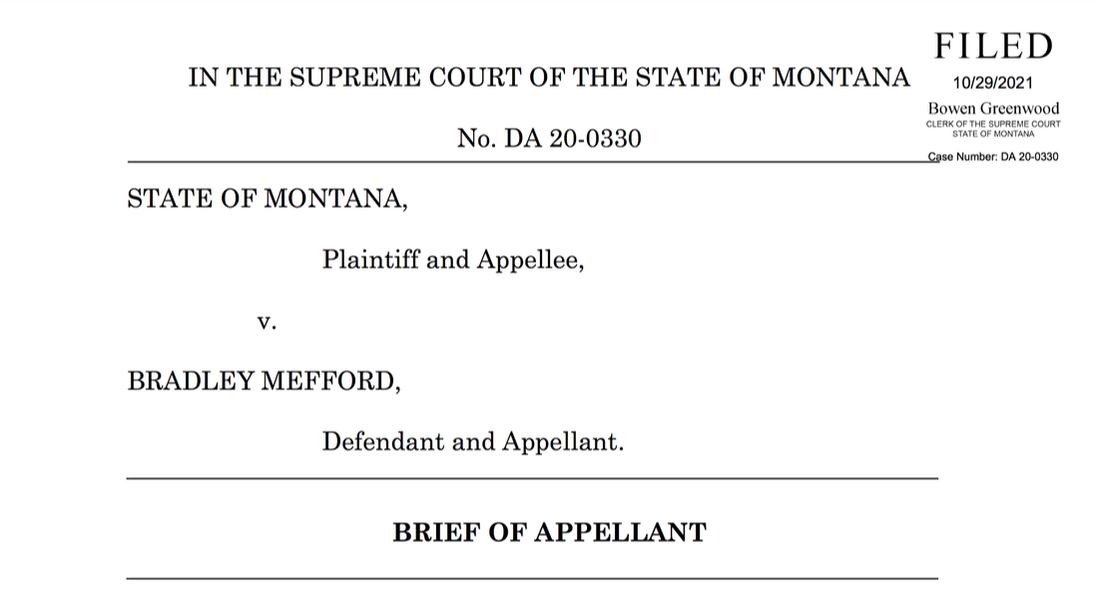|
Imagine you grant a law enforcement officer permission to inspect one item – an email or a message thread – in your cellphone: Does your consent give that officer further permission to view all the personal information stored in your device?
This is a question emerging from a case in Montana that, while a problematic test of the principle for a variety of reasons, still presents a broader and growing question of privacy that should concern all citizens: How compartmentalized must a search on a cellphone be? Before turning to that question, it is worth pausing to recognize that this case is not an ideal vehicle to highlight the problem. The case involves Bradley Mefford, a felon on parole in Montana. The Fourth Amendment rights of parolees are severely curtailed by law. It also arose under a state Constitution that has more generous Fourth Amendment provisions than the U.S. Constitution, and thus, if eventually reversed, would not provide much precedent for the narrower U.S. Constitutional provision. And finally, like many cases that present courts with sharp questions, this case involves an utterly contemptible crime — possession of child pornography. As the old saying goes, bad facts make bad law, and it is hard to disentangle constitutional principles from case-specific results when those results are especially noxious. Still, it is worth pausing to think about this case and the slippery slope it presents for all persons, not just felons or pedophiles. Here are the facts: One November evening in 2016, Mefford spoke to his daughter on a cellphone in the parking lot outside of his apartment. Mefford, who made a Wifi call on Facebook Messenger, said that he had to sit in his car to make the call because he could only pick up his Wifi signal outside his apartment. Mefford’s Probation Officer Jake Miller noticed from GPS surveillance that his parolee was in the parking lot and not in his apartment, despite a curfew imposed as a parole condition. Miller paid a visit to Mefford three days later. The parole officer doubted Mefford’s story that he was speaking with his daughter, so he asked to see the Messenger records in question. Mefford consented to allow Miller to view his Facebook Messenger application. After Miller looked at the Messenger records, he did not give back the phone. The parole officer exited that application, went to Mefford’s home screen, opened his photo gallery and began to scroll through digital pictures. Miller later testified that he viewed photos that were “not … right,” allegedly of a sexual nature regarding children. A Montana district court concluded that Miller had a right to search Mefford’s phone because his violation of the curfew was “suspicious.” Bradley Mefford was convicted for possessing child pornography and sentenced to five years in Montana State Prison. Now the Montana Supreme Court must decide whether the state overstepped its bounds when it used the phone’s images to convict Mefford. In another case in which Montana’s Supreme Court reversed a lower court ruling, the Court held that the range of warrantless searches permitted under Montana’s Constitution is narrower than those of the Fourth Amendment to the Constitution. The language of Montana’s Constitution is certainly expansive. It declares the “right of individual privacy is essential to the well-being of a free society and shall not be infringed without the showing of a compelling state interest.” A U.S. Supreme Court ruling recognizes the special nature of a cell phone search, holding that a unique invasion of privacy occurs when a cell phone is improperly opened. In Riley v. California, the U.S. Supreme Court held in 2014 that cellphones “are now such a pervasive and insistent part of daily life that the proverbial visitor from Mars might conclude they were an important feature of human anatomy.” As for all the images, calls, contact lists, health information and other personal data stored in a cell phone, the Court held that such a search permits the government to see the “sum of an individual’s private life.” In a similar vein, Mefford’s attorneys characterized the actions of parole officer Miller as: “The physical equivalent of rummaging through a person’s recent mail at his house and then thumbing through his filing cabinets at an off-site storage facility and then sifting through his personal photo albums and home videos and then rolling through his rolodex.” The American Civil Liberties Union, which filed a brief with the Montana Supreme Court, blogged that “police should not be able to leverage someone’s consent to search limited information on their cell phone for a limited purpose into a search of anything or everything on the device for any purpose.” We are skeptical Mefford will emerge as a landmark case. The appellant is convicted of an inexcusable crime. He is a parolee, whose rights are severely curtailed. And a favorable decision for that parolee, if there is one, might well come under the provisions of the Montana Constitution, limiting its national relevance. Still, the broader point raised by ACLU is a good one that affects all persons, not just parolees still under close government supervision as part of their sentences. PPSA will look for better test cases on this issue in order to guard against a case with bad facts making bad law for everyone. Comments are closed.
|
Categories
All
|


 RSS Feed
RSS Feed